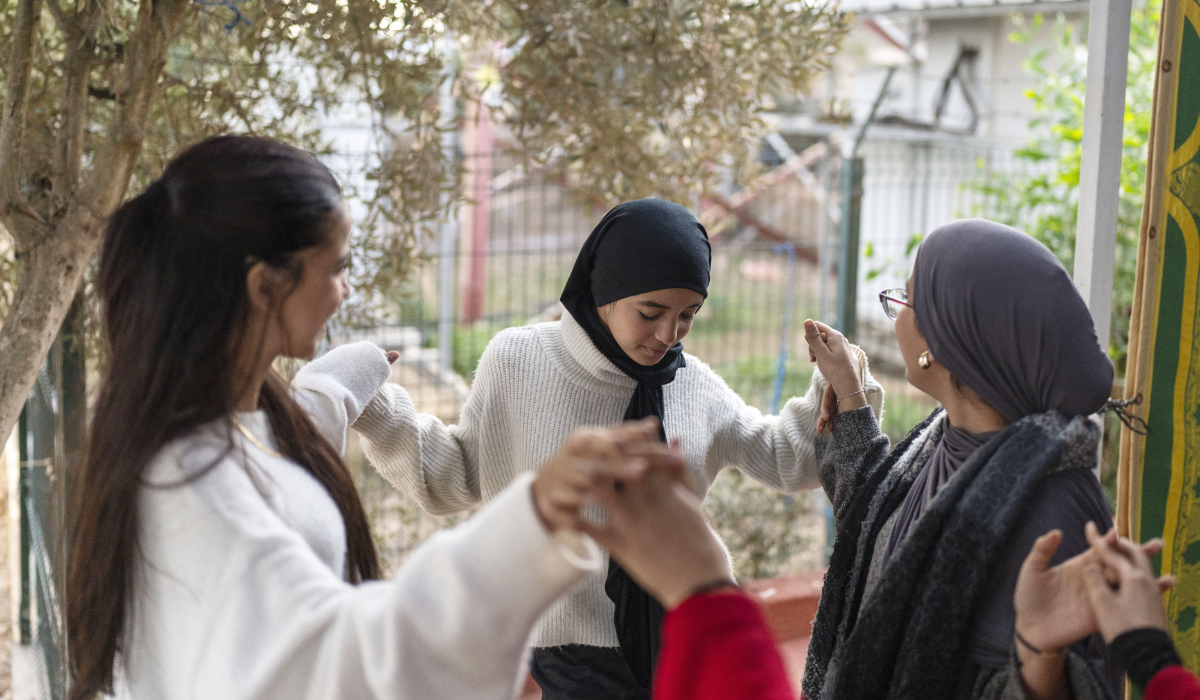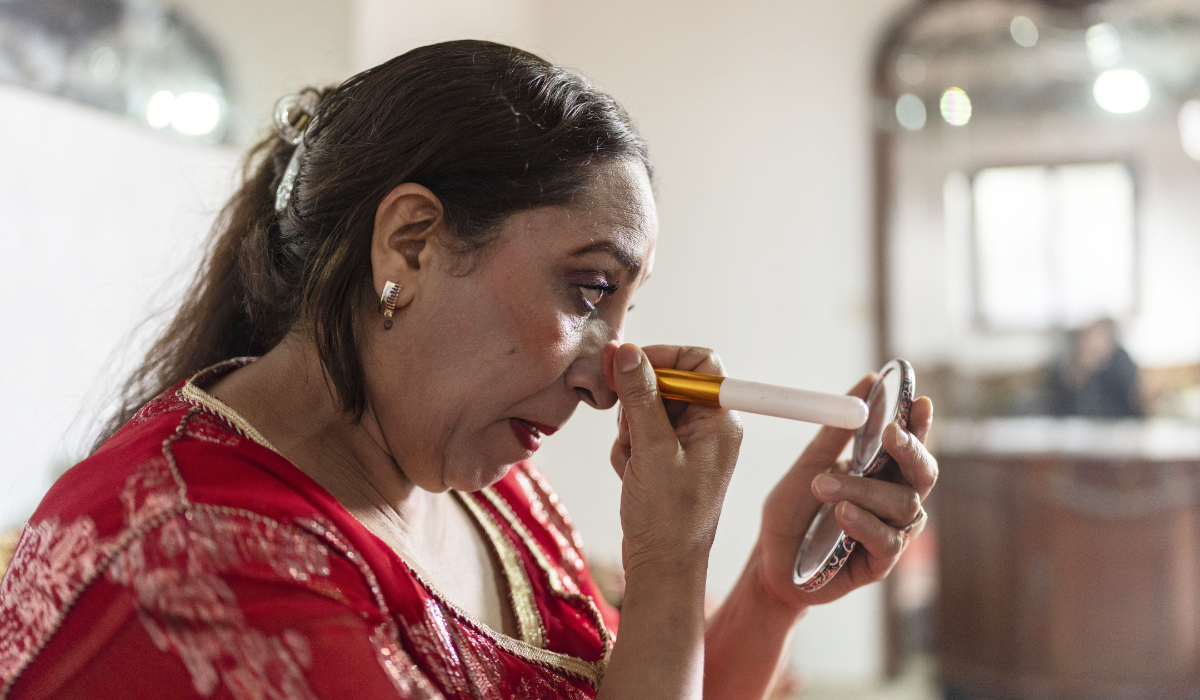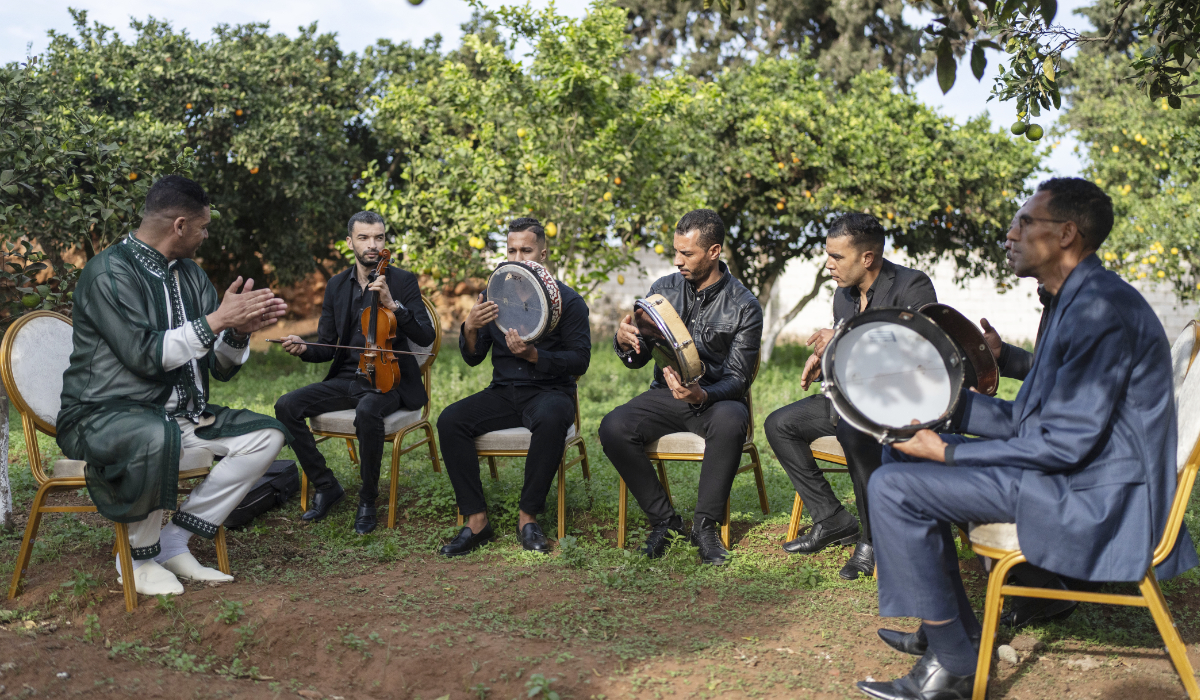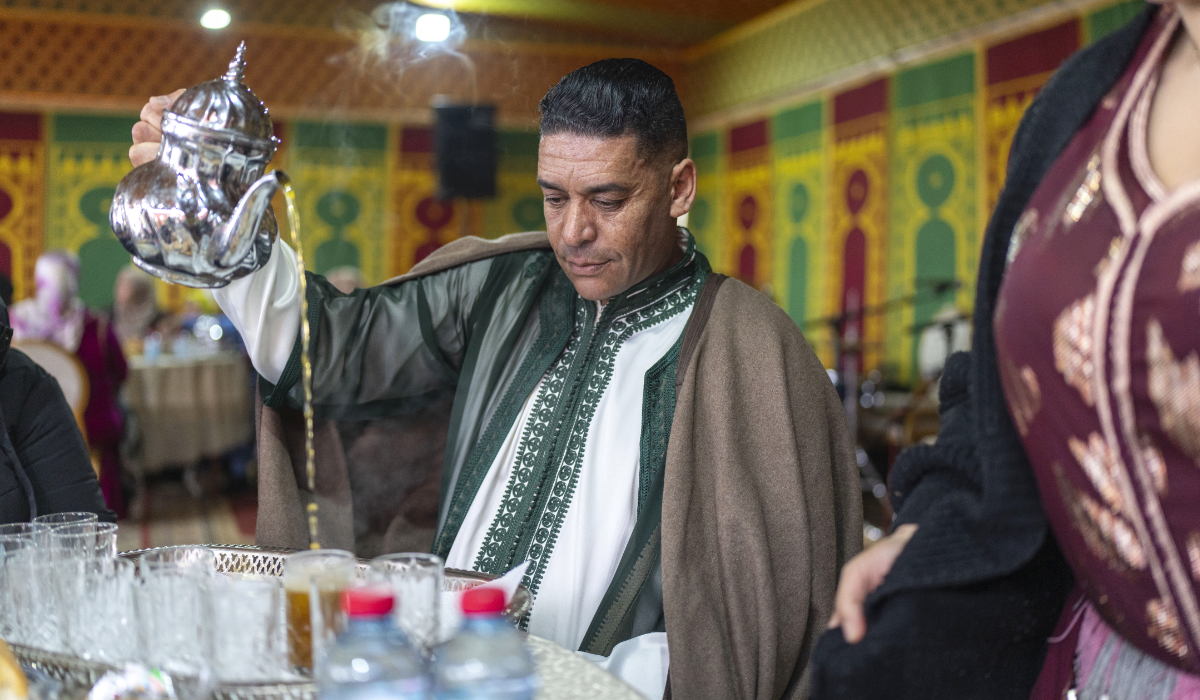SIDI YAHYA ZAER, Morocco: Mbarka Moullablad’s family frowned when she first told them she planned to make a living as a cheikha, singing about love, pain, and societal change to the melodies of her ancestors under the stage name “Thouria.”
Women like her are the stewards of one of Morocco’s most cherished oral traditions: a form of folk singing known as aita, which means a “cry” or “lament” in Arabic. From smoky bars and cabarets in Morocco’s largest cities to the gatherings in the country’s rural regions, they croon at weddings, festivals and private events and pub nights, hypnotizing audiences both humble and wealthy.

Girls dance during a traditional performance known as Aita, in Tamesna, south of the capital Rabat, Morocco, Monday, Jan. 27, 2025. (AP)
But despite aita’s position in Moroccan culture, the genre’s popularity does not always translate into acceptance for those who perform it. Cheikha are often stigmatized, eroticized, and pushed to society’s margins. That was once a fear for Moullablad, but she says her community in Sidi Yahya Zaer, a farming town on Morocco’s Atlantic plains, has mostly accepted her.
“My family did not agree at first and I used to suffer from society’s judgment, but now everything is good,” Moullablad said on the sidelines of a recent performance south of Morocco’s capital, Rabat. “I do it in order to earn money for my children.”

Cheikha folk singer Mbarka "Thouria" Moullablad applies makeup as she prepares for a traditional performance known as Aita, in Sidi Yahya Zaer, south of the capital Rabat, Morocco, Monday, Jan. 27, 2025. (AP)
A form of sung poetry, aita has long explored themes of societal triumphs, ironies, and unspoken struggles, including those related to relationships and economic hardship. Cheikha don heavy stage makeup, silk caftans, and golden takchita belts as they sing about their community’s agonies and triumphs. They sway their hips to amplify emotion, dancing seductively or cheerfully depending on the context.
When Moullablad performs, men and women lean in as her voice softens, captivated as she climbs octaves into a full-throated howl. The beads wrapped around her sister Fatiha’s belly shake as she dances. The band leader, another singer, backs her with his own poetry while a drummer keeps the beat, a guitarist strums, and a violinist drags his bow in sync.

A music band prepares for a traditional performance known as Aita, in Sidi Yahya Zaer, south of the capital Rabat, Morocco, Monday, Jan. 27, 2025. (AP)
Those who come to hear them sing say cheikha can serve as a community’s truth-tellers, singing about often unspoken dynamics related to marriage, agriculture or, historically, colonial resistance. Moullablad sings in Moroccan Arabic, embodying traditions specific to her community. But cheikha across the North African Kingdom also perform in the indigenous Amazigh language, adapting the music and lyrics to reflect their region.
The art form has inspired contemporary acts like the electro-infused “Aita, Mon Amour” and Kabareh Cheikhats, a troupe of male actors who pay homage, dress and sing in the tune of Morocco’s most celebrated 20th century women folk singers. It is also the subject of Morocco’s submission for this year’s Academy Awards, “Everybody Loves Touda,” which follows a single mother who leaves her town in the Atlas Mountains to pursue her dream of singing in bars, cabarets, and hotels in Casablanca.

Moroccan tea is distributed during a traditional performance known as Aita, in Tamesna, south of the capital Rabat, Morocco, Monday, Jan. 27, 2025. (AP)
“I was always amazed by their strength and the power that they have toward people when they open their mouths. Whether they are modern or conservative people, they all stand up and get into a kind of trance like gospel,” Nabil Ayouch, the film’s director, said in an interview when the film premiered at the Marrakech Film Festival last year.
Morocco’s music scene is increasingly embracing Middle Eastern pop and rap by North African artists from throughout the diaspora. And rural communities are shrinking amid the country’s rapid development and urbanization. But though the future of aita may seem uncertain, its musicians and listeners remain confident that it will endure.
“Aita will not die because it is renewed by young people. Aita will remain in all times and is loved by old people and young people as well. It is developed and improved, but they preserve its origins,” said Rachid Kadari, a Cheikh who also sings aita.



























